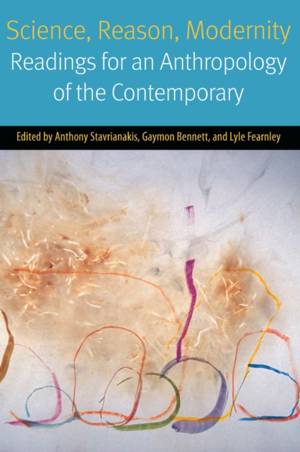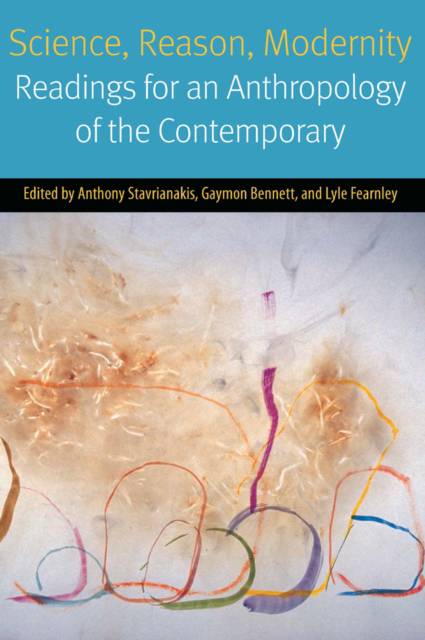
- Afhalen na 1 uur in een winkel met voorraad
- In januari gratis thuislevering in België
- Ruim aanbod met 7 miljoen producten
- Afhalen na 1 uur in een winkel met voorraad
- In januari gratis thuislevering in België
- Ruim aanbod met 7 miljoen producten
Science, Reason, Modernity
Readings for an Anthropology of the Contemporary
Omschrijving
Science, Reason, Modernity: Readings for an Anthropology of the Contemporary provides an introduction to a legacy of philosophical and social scientific thinking about sciences and their integral role in shaping modernities, a legacy that has contributed to a specifically anthropological form of inquiry. Anthropology, in this case, refers not only to the institutional boundaries of an academic discipline but also to a mode of conceptualizing and addressing a problem: how to analyze and diagnose the modern sciences in their troubled relationships with lived realities. Such an approach addresses the sciences as forms of life and illuminates how the diverse modes of reason, action, and passion that characterize the scientific life continue to shape our existences as late moderns.
The essays provided in this book--many of them classics across disciplines--have been arranged genealogically. They offer a particular route through a way of thinking that has come to be crucial in elucidating the contemporary question of science as a formal way of understanding life. The book specifies the historical dynamics by way of which problems of science and modernity become matters of serious reflection, as well as the multiple attempts to provide solutions to those problems. The book's aim is pedagogical. Its hope is that the constellation of texts it brings together will help students and scholars working on sciences become better equipped to think about scientific practices as anthropological problems. Includes essays by: Hans Blumenberg, Georges Canguilhem, John Dewey, Michel Foucault, Immanuel Kant, Paul Rabinow, Max Weber.Specificaties
Betrokkenen
- Uitgeverij:
Inhoud
- Aantal bladzijden:
- 336
- Taal:
- Engels
- Reeks:
Eigenschappen
- Productcode (EAN):
- 9780823265930
- Verschijningsdatum:
- 21/04/2015
- Uitvoering:
- Hardcover
- Formaat:
- Genaaid
- Afmetingen:
- 155 mm x 229 mm
- Gewicht:
- 566 g

Alleen bij Standaard Boekhandel
Beoordelingen
We publiceren alleen reviews die voldoen aan de voorwaarden voor reviews. Bekijk onze voorwaarden voor reviews.








